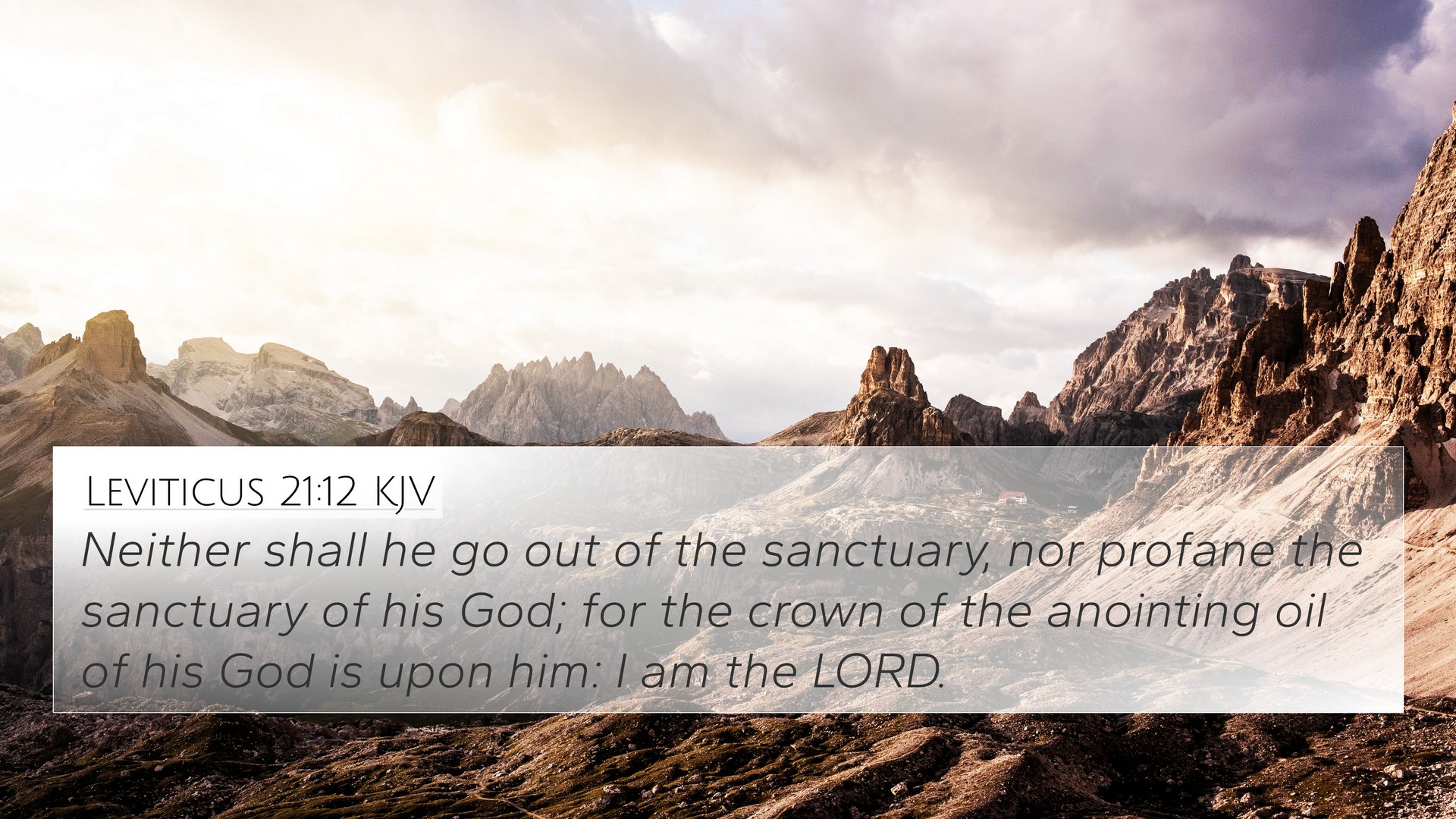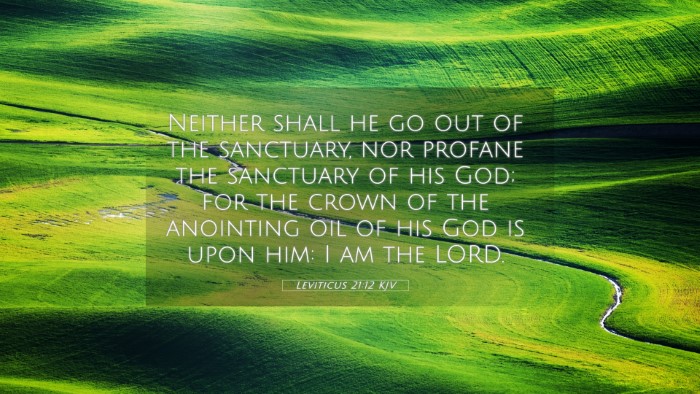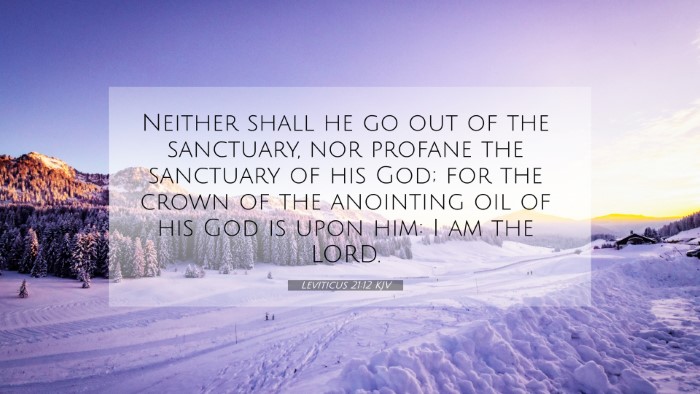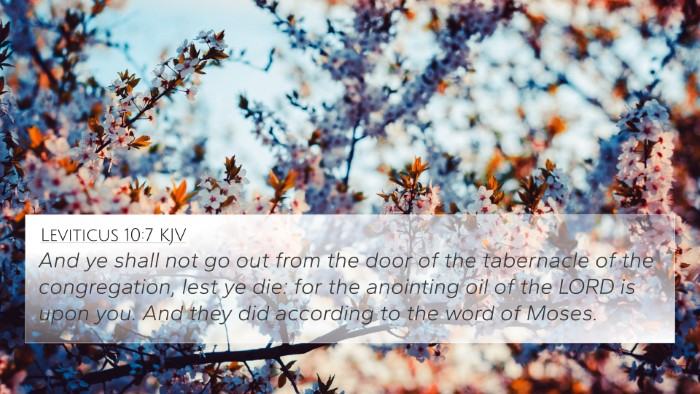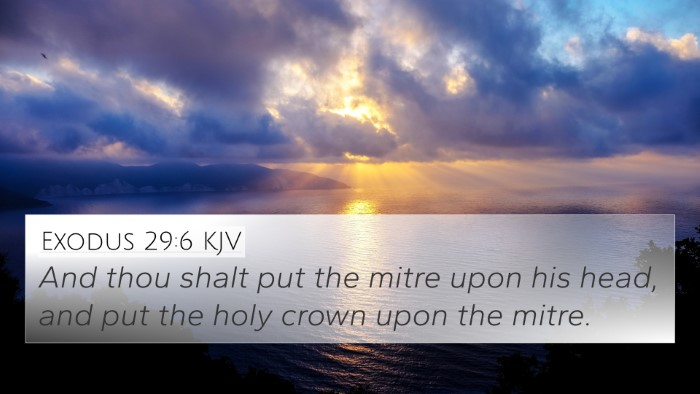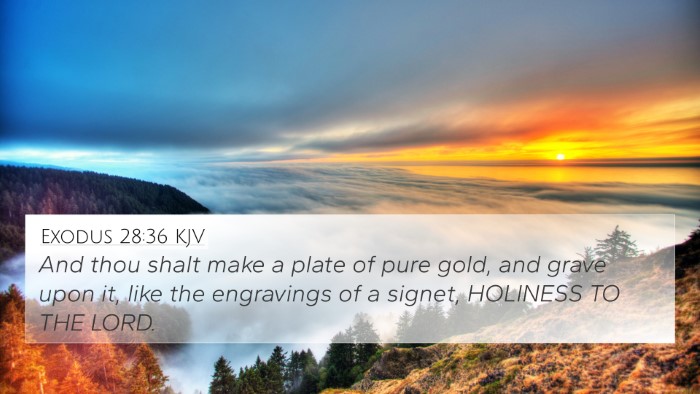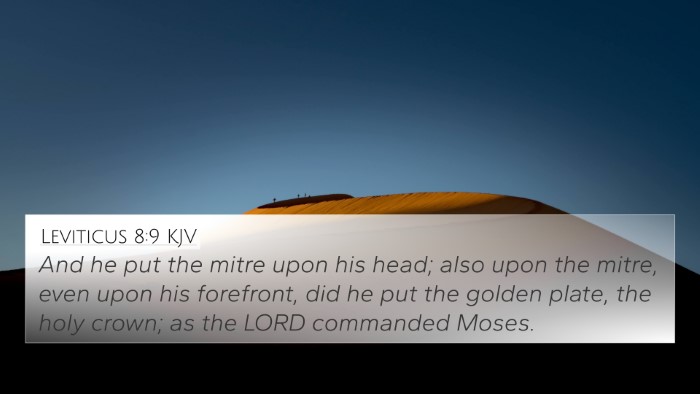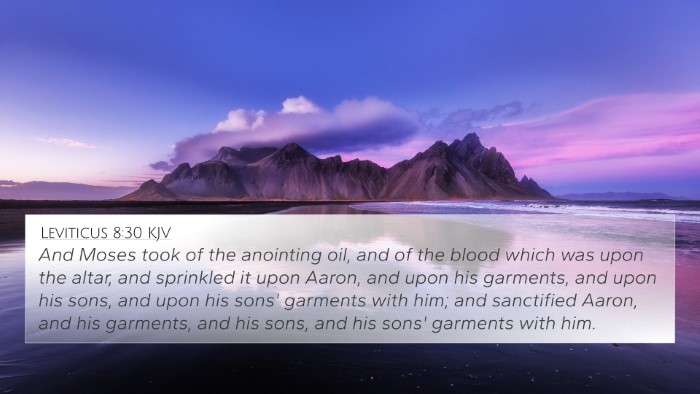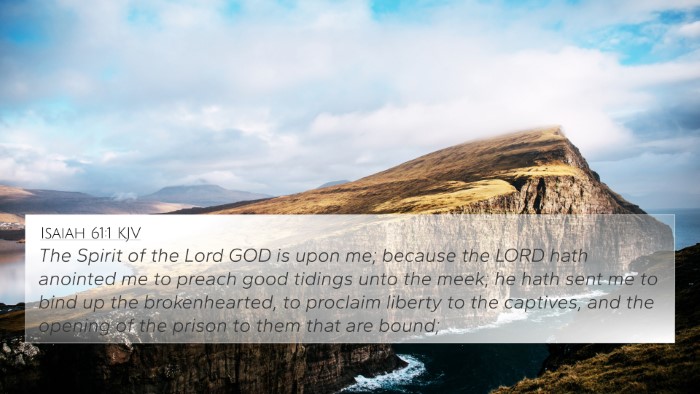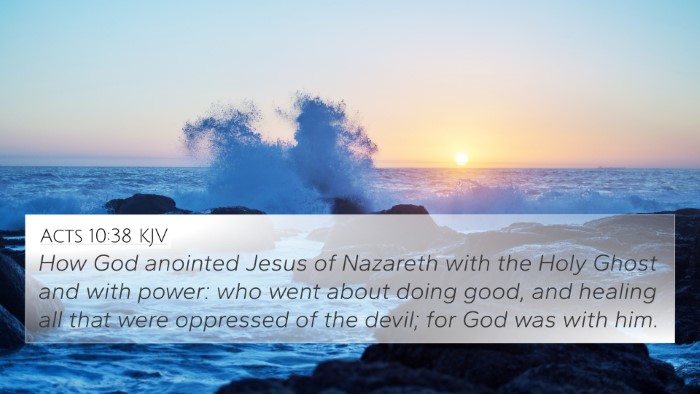Understanding Leviticus 21:12
Verse: "Neither shall he go out of the sanctuary, nor profane the sanctuary of his God; for the crown of the anointing oil of his God is upon him: I am the Lord."
Summary of Meaning
Leviticus 21:12 addresses the sanctity and responsibilities of priests, emphasizing their unique role in serving God. The verse underscores the high standards expected of those who are set apart for divine service, highlighting the importance of maintaining purity in the presence of God.
Commentary Insights
-
Matthew Henry's Commentary:
Henry emphasizes that priests were dedicated to God and had a duty to uphold the sanctity of their office. They were not to step outside the sanctuary for personal reasons, illustrating that their primary focus should remain on sacred duties. This limitation signifies the seriousness of their calling and the weight of the anointing they bear.
-
Albert Barnes' Commentary:
Barnes points out that the priest's anointing oil signifies the divine selection and empowerment for ministry. The prohibition against leaving the sanctuary serves to protect the integrity of the worship environment and illustrates the importance of undivided dedication to God's service.
-
Adam Clarke's Commentary:
Clarke expands on the notion of the priest's responsibilities, highlighting the need for sacred separation from worldly affairs. He notes that the sacred anointing creates a bond between the priest and God, compelling him to prioritize his divinely appointed tasks above all else.
Cross-References
Leviticus 21:12 connects with several other scriptures, emphasizing the theme of holiness and dedication in service to God:
- Exodus 28:43: Details the garments of the priests and their role in maintaining sanctity.
- Numbers 18:7: Discusses the responsibilities of the priests regarding the altar and sacred offerings.
- 1 Peter 2:9: Refers to believers as a "royal priesthood," underscoring the call to holiness.
- Hebrews 10:19-22: Encourages believers to enter the holy presence of God with assurance, linked with priestly duties.
- Ezekiel 44:15-16: Addresses the qualities expected of priests in the future temple.
- Malachi 2:7: Highlights the role of priests as messengers and guardians of knowledge.
- Matthew 23:8-10: Jesus teaches about the authority and service of those who lead in a spiritual capacity.
Thematic Connections
In analyzing Leviticus 21:12, various themes emerge:
- Holiness: The necessity for those set apart for God to remain holy and dedicated.
- Separation: The call to live distinctively in service to God, avoiding worldly distractions.
- Service: The importance of understanding one's role and responsibilities in the ministry.
- Divine Anointing: Recognition of God’s selection and empowerment for spiritual service.
Application in Biblical Context
Leviticus 21:12 not only applies to ancient priests but resonates with modern believers who consider themselves called to serve God. The expectation of holiness and dedication remains relevant, encouraging individuals to prioritize their spiritual responsibilities and maintain the sanctity of their calling.
Tools for Further Study
For deeper understanding, various tools and resources are available, such as:
- Utilizing a Bible concordance for locating cross-references.
- Consulting a Bible cross-reference guide to understand relationships between verses.
- Engaging in cross-reference Bible study to explore themed connections.
- Applying cross-referencing Bible study methods for a comprehensive study experience.
Conclusion
Leviticus 21:12 serves as a profound reminder of the sacred nature of God’s calling. It encourages an ongoing commitment to spiritual integrity and serves as a bridge to understanding the continuity of divine expectations throughout the Scriptures.
